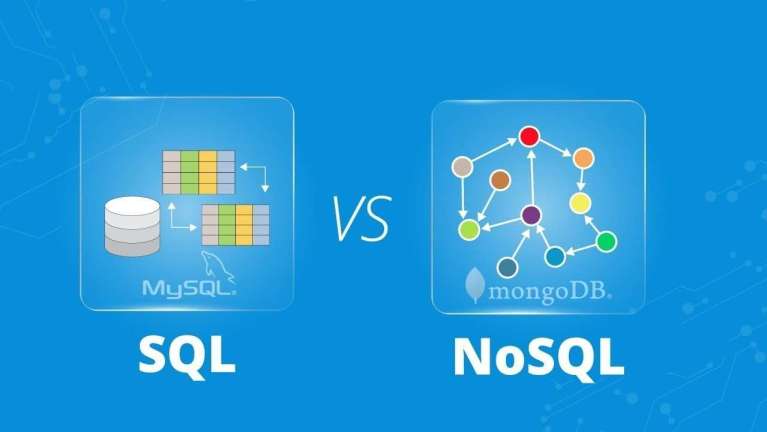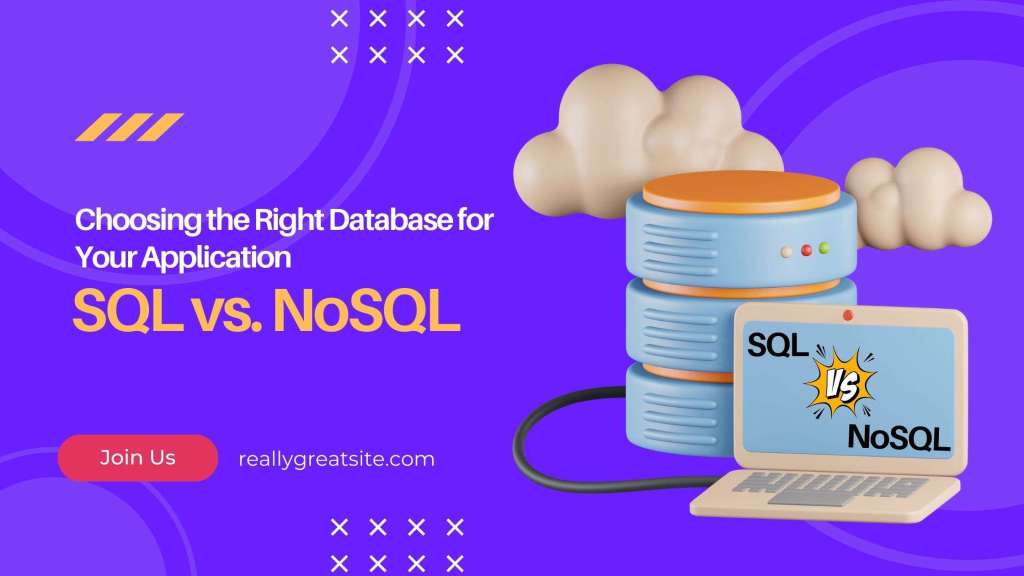Choosing the Right Database for Your Application: SQL vs. NoSQL
Are you ready to delve into the world of databases and make a monumental decision for your application? Choosing between SQL and NoSQL can be like selecting a flavor from an ice cream parlor with endless options. But fear not – this blog post is here to guide you through the tantalizing choices, helping you find the perfect match. So grab a spoon, get comfortable, and let’s explore why it’s essential to choose the right database for your application!
Introduction to SQL and NoSQL Databases
NoSQL databases are a newer category of database that have been developed to meet the needs of modern web applications. NoSQL databases are highly scalable and provide features that are not available in traditional relational databases.
NoSQL databases can be classified into four main categories: key-value stores, column stores, document stores, and graph databases. Each type of NoSQL database is designed for a specific data model and has its own strengths and weaknesses.
SQL (structured query language) is a standard language for accessing and manipulating relational databases. SQL is the most common way to interact with relational databases, but it is not the only option. NoSQL databases can be accessed using tools such as the MongoDB Query Language (MQL) or Cassandra Query Language (CQL).
When choosing a database for your application, you need to consider your data model, scalability requirements, and performance needs. SQL databases are best suited for applications that require complex queries or transactions. NoSQL databases are best suited for applications that require high scalability or real-time access to data.
Advantages and Disadvantages of SQL vs. NoSQL
Arguably the biggest advantage of SQL databases is that they are tried, tested, and proven. They are part of an ecosystem that has been continuously refined over decades. This means that there is a wealth of support and tooling available for SQL databases, which can make development and administration much easier.
SQL databases are also generally more easy to understand and work with than their NoSQL counterparts. This is because the data is organized in a predictable way and there is a well-defined schema that governs how the data can be accessed and changed. This can make it simpler to develop applications that interact with an SQL database.
On the downside, SQL databases can be inflexible compared to NoSQL databases. Because of their rigid structure, it can be difficult to make changes to an SQL database without causing disruptions. Additionally, SQL databases tend to scale vertically rather than horizontally, which can limit their scalability potential.
NoSQL databases offer a number of advantages over traditional SQL databases. One of the biggest advantages is that they are generally more scalable than SQL databases. This is because NoSQL databases are designed to scale horizontally, making it easy to add additional servers as needed.
NoSQL databases also tend to be more flexible than SQL databases, as they often do not have a fixed schema. This makes it easier to accommodate changes or add new data types without having to make major changes to the database structure. Additionally, NoSQL databases are often better suited for handling large amounts of unstructured data.
The downside of NoSQL databases is that they can be more difficult to understand and work with than SQL databases. This is because the data is usually organized in a non-traditional way, which can make it more challenging to develop applications that interact with a NoSQL database. Additionally, there may be less support and tooling available for NoSQL databases compared to SQL databases.

Pros and Cons of using an SQL vs. NoSQL Database
When it comes to databases, there are two main types: SQL and NoSQL. Both have their pros and cons, so it’s important to choose the right one for your application.
SQL databases are good for data that is highly structured and doesn’t change often. They’re also easy to use because they use a standard query language. However, SQL databases can be slow when handling large amounts of data, and they can be expensive to scale.
NoSQL databases are good for data that is unstructured or changes frequently. They’re also generally faster than SQL databases and more scalable. However, NoSQL databases can be more difficult to use because they don’t have a standard query language.
So, which one should you choose? It depends on your needs. If you need a fast, scalable database for frequently changing data, then NoSQL is a good choice. However, if you need a easy-to-use database for structured data that doesn’t change often, then SQL is the better option.
Scenarios in which one Database Type is Better than the other
There are many different types of databases available, each with their own benefits and drawbacks. In some cases, one type of database may be better suited for a particular application than another. Here are some scenarios in which one database type is better than the other:
If you need a database that can handle large amounts of data quickly and efficiently, then a SQL database is likely your best bet. If you need a database that is more flexible and can easily handle changes to your data model, then a NoSQL database may be a better choice.
Tips for Choosing the Right Database for Your Application
When it comes to choosing a database for your application, there are a few factors you need to take into account. First, what kind of data are you storing? If you’re dealing with simple data like strings and numbers, then a SQL database may be the right choice. However, if you’re dealing with more complex data structures like documents or key-value pairs, then a NoSQL database may be a better fit.
Another thing to consider is performance. If you need real-time reads and writes or horizontal scalability, then NoSQL is probably the way to go. However, if you can sacrifice some performance for the sake of easier administration and query optimization, then SQL may be the better option.
It’s important to think about your team’s skillset. If you have developers who are more comfortable working with relational data, then SQL is probably the better fit. However, if you have developers who are more comfortable working with non-relational data, then NoSQL may be the way to go.
At the end of the day, there is no right or wrong answer when it comes to choosing a database. It all depends on your specific needs and requirements. Hopefully these tips will help you make the best decision for your application.
Conclusion
In conclusion, selecting the right database for your application is an important decision that can have a long-term impact on your success. Each technology has its own pros and cons, so it’s essential to assess the needs of your application and decide which type will be best. If you feel like SQL may be better for your project due to its structure and consistency, go with that option. However, if you’re looking for something more dynamic with high scalability capabilities, then NoSQL might be a better fit. Ultimately, it is up to you to decide what works best given the requirements at hand.






